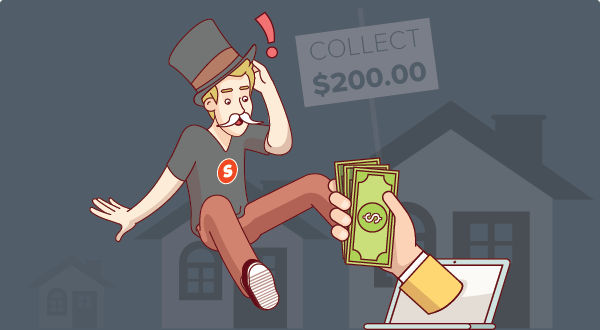Wil Schroter

What's the worst equity holder we could possibly have in our cap table? The one who isn't even here any longer.
We all know this, and yet for generations, we've built cap tables loaded with "absentee landlords" who provide no ongoing value but reap all the benefit of those that continue to drive the ship. Until recently the notion of "dead equity" has been just accepted and rarely challenged, leaving those that still work for the company to carry those that don't.
I'd like to poke a giant, trident-sized hole in this argument once and for all. And for my fellow Founders who are dealing with this issue at present, or soon will be, I want to provide you with some ammunition toward what will invariably be a tough and painful conversation.
Great, I'll Work for You Forever
The problem when another equity holder leaves is that they no longer need to work for their equity, but we do. Those of us have to stay behind and grind it out for essentially the same equity stake we'd have whether we worked there or not. That sounds like an awesome deal - for them. We're essentially penalized for staying.
Ultimately we're saying to them "I now work for you — forever." While they are working on their next job, maybe even getting additional equity, we're moving forward without any additional benefit. In case this wasn't obvious, this is a total shit deal for us. This gets exponentially worse as we add more and more people who earn a lifetime of value for a moment in time of contribution.
Imagine comparing this argument to a salary. "I would like to get the same salary for the rest of my life because I worked really hard at the company for the first 2 years." No one in the world would buy that argument and yet, it's exactly what we're implying with dead equity.
"But My Contribution Was Critical to Our Success!"
The argument that holding onto "forever equity" because at a moment in time someone made a contribution is bullshit. If that's true, then we could make the argument that all of us could stop working right now and the company would continue to grow and create value. Wait, it doesn't? Why do we think that is?
People absolutely make critical contributions to a companies' success, but unless those contributions have some mechanism that will forever keep contributing after they leave, the argument doesn't hold up. If that contributed invented a patented piece of software that we are licensing for the next 10 years — sure.
But the person that ran the Customer Support team or was the CFO was only valuable when they were actually working in that position. The moment they left, while they created compounding value (maybe) they were no longer contributing with their equity share by sustaining that value.
The Dead Equity Clawback
The only way we can rectify this situation is by creating a mechanism for a dead equity "clawback." We have to build in systems that allow the company to bring this equity back to the people who are actively working for it and creating sustained value. To be clear — this is a wildly painful and unpopular conversation.
One way we can address this allowing the equity to do a reverse vest over time. For example, a 10% stake would reduce by 2% for each year after the person has left, and in some cases may have a final amount that will not be clawed back at all.
What we can't afford is to have an entire cap table filled with absentee landlords who are creating no new value and are preventing us from using this invaluable resource to attract new talent or capital to build the organization. Equity should be reserved for those that see the company through. It's that simple.
In Case You Missed It
How Much to Pay Yourself. As a Founder, how do you determine how much to pay yourself? How much is too much or too little? We’re breaking down the long-debated issue of Founder compensation to help you find the right balance.
How Do I Get More Equity Back? Giving equity away is easy. Getting it back is super hard. So while we can get some stock back into our coffers, we have to focus more on how quickly we give it away than how we get it back.
Is a $0 Founder Salary a Badge of Honor? (podcast) The $0 salary: is it the cool and honorable thing to do, or is it completely and utterly ridiculous?
Find this article helpful?
This is just a small sample! Register to unlock our in-depth courses, hundreds of video courses, and a library of playbooks and articles to grow your startup fast. Let us Let us show you!
Submission confirms agreement to our Terms of Service and Privacy Policy.
Already a member? Login
Start a Membership to join the discussion.
Already a member? Login

Exactly, they are situations for which throughout the first entrepreneurs they will realize that they will run into people who will not add to their business and who must be getting out of the way to be able to grow hard.
I believe that the people who should be surrounded are those who add both monetarily and emotionally, this so that there can be a success on the path of entrepreneurship